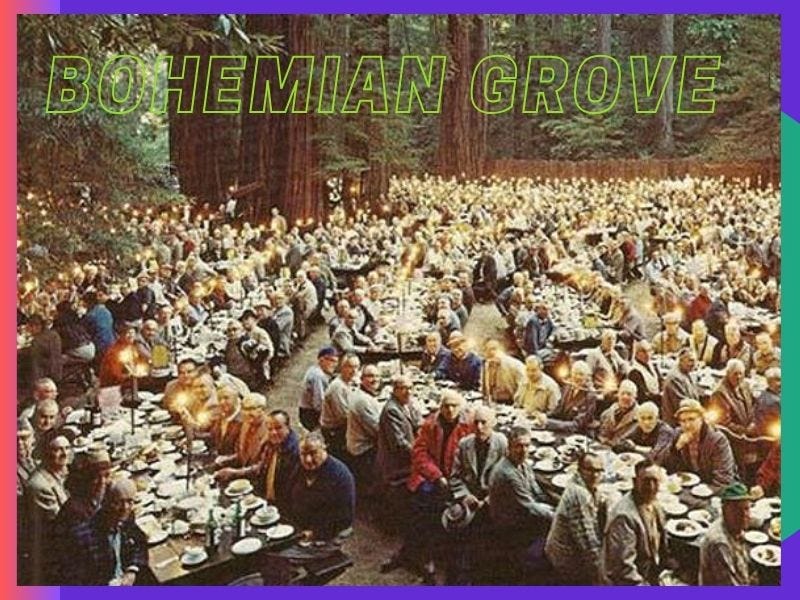In 1999, Alex Jones and Jon Ronson snuck into Bohemian Grove to spy on—as Jones might say—the evil globalists. Although Jones and Ronson were total party crashers, it’s notable how much they actually fit right in. Had they been only slightly more well-known at the time, they may have gotten their own invites.
Bohemian Grove’s guest list didn’t just include powerful politicians and businessmen. It also included household-name artists and intellectuals. This often goes overlooked, unappreciated. As Jeet Heer recently pointed out on X, in the below photo of Clarence Thomas and David Koch, “People aren’t noticing enough that that is Ken Burns in the center of this photo.”
What was a filmmaker like Ken Burns doing at Bohemian Grove? According to a UC Santa Cruz professor who has studied Bohemian Grove, the artists and intellectuals were invited “to give the occasion a thin veneer of cultural and intellectual pretension.”
This view, in my estimation, misses the mark. The idea that artists are only good for adding a “thin veneer of cultural and intellectual pretension” is naïve with respect to the real power that popular artists possess.
Politics is downstream from culture. This reality gives the creators of culture an oversized influence on politics. I’ve written previously about the power of storytelling and how “virtually all political and cultural conflicts boil down to competing stories.” For the rich and powerful to meaningfully impact who people vote for and what people buy, you need to be able to tell a good story. Hiring an ad agency will only do so much good. Much better to plant a seed in the mind of an influential novelist, songwriter, or filmmaker.
In the case of Ken Burns: his Vietnam War documentary was partly paid for by David Koch. In an article clarifying that Burns didn’t regularly hang out with Koch, it is noted that Koch donated money to public television for decades. No doubt he did this with the intention of pushing some agenda. The Koch Brothers were isolationists. Whether Ken Burns realized it or not, his Vietnam War documentary furthered David Koch’s isolationist worldview.
The twist to all of this is that, as Claire Lehmann recently noted, “Politics is downstream from culture, but culture is downstream from technology.” At the top of this piece, I mentioned that Alex Jones, as a cultural commentator, would have fit right in as one of the artist guests at Bohemian Grove. But realistically Jones would never get an invite. He’s too lowbrow to mingle directly with Supreme Court Justices and David Koch types. So he’s a bad example of an artists who could be directly manipulated by the powerful. But he’s the perfect example of a cultural figure who exists at the mercy of technology. When Jones became a big enough nuisance and a threat to civilized discourse, tech companies booted him from all major social media platforms.
The rich and powerful always get the last laugh. Unless you’re Ken Burns, smiling for the camera while taking as much dirty Koch money as possible, only to create a masterwork that rises above a petty, one-note narrative.





